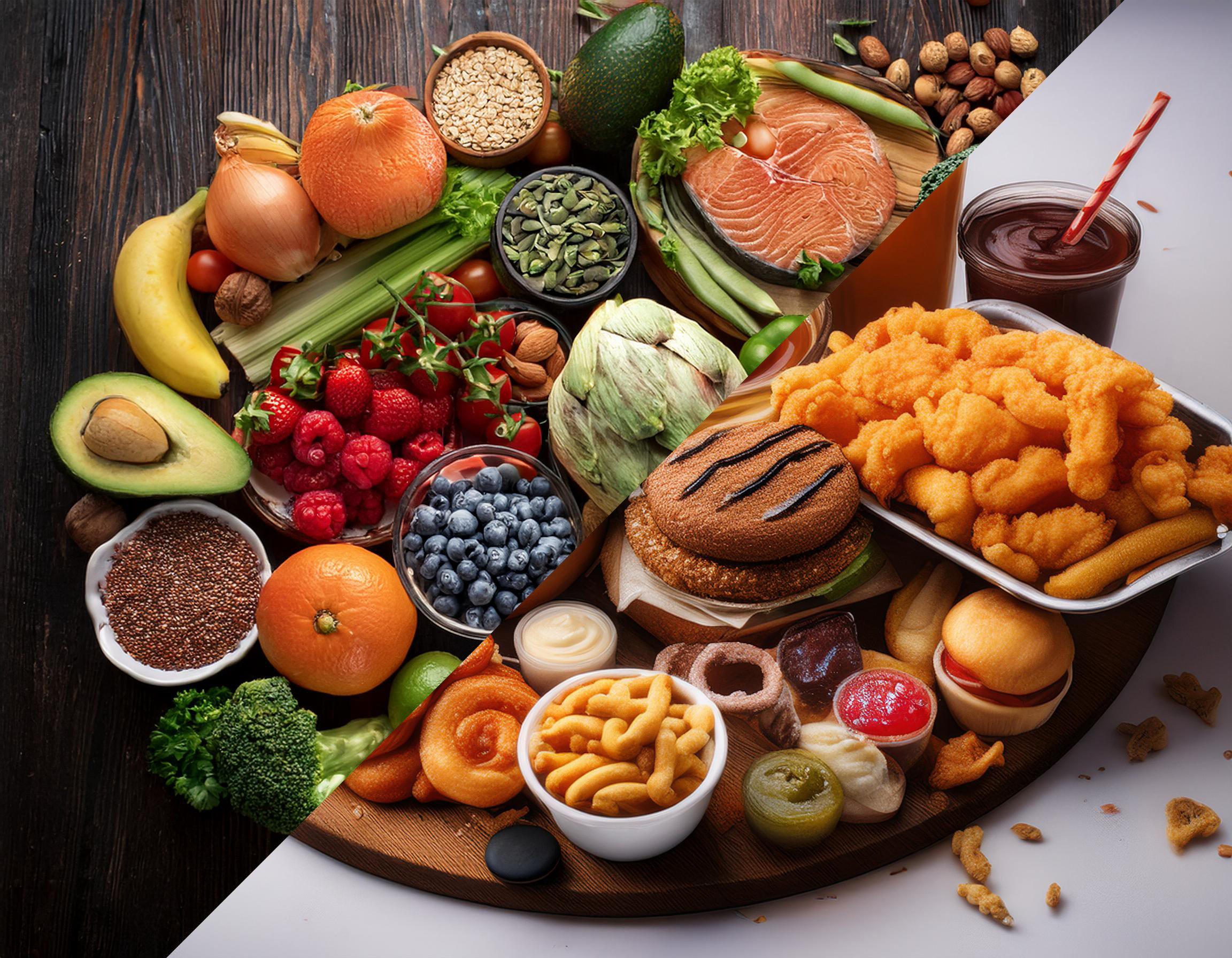In today’s world of supermarkets stocked with out-of-season produce, ultra-processed foods, and 24/7 availability, we face a paradox: we are overfed but undernourished. Despite having access to more food than ever before, our diets are leaving us depleted—not only nutritionally, but also in vitality and connection to nature’s rhythms.
How Did We Get Here?
The abundance of modern food options should be a triumph of human ingenuity. Yet, convenience has come at a cost. Over the last century, we’ve shifted from local, seasonal, and minimally processed foods to a diet dominated by packaged goods, preservatives, and artificial flavours. These changes have fundamentally altered our relationship with food.
- Out-of-Season Eating:
- Nature’s cycles once dictated what we ate and when. Seasonal eating ensured variety, balanced nutrition, and a connection to the land.
- Today, technology allows us to eat strawberries in winter, mangos year-round, and tomatoes flown in from halfway across the world. But these out-of-season foods are often picked early, shipped long distances, and stored for weeks, losing much of their freshness and nutrient density.
2. Ultra-Processed Foods:
- Nearly 60% of calories in many modern diets come from ultra-processed foods, which are calorie-dense but nutrient-poor. These foods are engineered for taste and shelf life, not for nourishment.
- They are loaded with added sugars, unhealthy fats, and artificial ingredients while stripped of the vitamins, minerals, and fibre our bodies need.
3. Quantity Over Quality:
- We now eat more calories than ever before, but those calories come from foods that barely support our health. Empty calories lead to deficiencies in essential nutrients like magnesium, zinc, and omega-3s, even when we’re consuming enough food—or even too much.
The Health Consequences
Our overabundant, nutritionally shallow diet is taking a toll on our health:
- Obesity and Chronic Illness: The prevalence of obesity, type 2 diabetes, and cardiovascular disease has skyrocketed. These conditions are often linked to the excess consumption of processed foods and added sugars.
- Micronutrient Deficiencies: Despite eating more food, many people suffer from hidden hunger—deficiencies in key nutrients like iron, vitamin D, and iodine.
- Digestive and Metabolic Dysfunction: Fibre-poor diets disrupt gut health, leading to imbalances in the microbiome that affect everything from digestion to immune function and mental health.
- Poor Musculoskeletal Health: Healthy aging and mobility depends on good nutrition, including macro and micronutrients essential for maintaining bone density and muscle mass, the foundation of or body. The quality of proteins, healthy fats and complex carbohydrates are critical. It is now believed that more than 90% of our health is determined by epigenetics (lifestyle, nutrition, and environmental factors) and is not preprogrammed genetically.
Reconnecting with Real Food
To address this crisis, we need to rethink the way we eat and shop. The solution lies in quality over quantity and a return to eating food as nature intended.
1. Seasonal Eating for Better Nutrition:
Eating with the seasons is about more than just flavour—it ensures we get the nutrients we need at the right time. For example:
- Winter: Root vegetables and hearty greens support immunity and warmth.
- Summer: Fruits like berries and melons provide hydration and quick energy.
2. Freshness Over Storage:
Freshly harvested produce is more nutrient-dense than food that’s been sitting in storage or shipped across the globe. Locally sourced foods, whether from farmers’ markets or your own garden, are a win for both nutrition and sustainability.
3. Whole, Minimally Processed Foods:
Focus on whole foods that look as close as possible to how they came from nature:
- Swap white bread for whole grains.
- Replace sugary snacks with fresh fruit.
- Add healthy fats from nuts, seeds, and avocados.
4. Cook More, Order Less:
Cooking at home allows you to control ingredients and avoid hidden sugars, salts, and unhealthy oils. Simple meals made from fresh ingredients are often more nourishing and satisfying than anything that comes from a package.
Beyond the Plate
This is more than just a diet shift; it’s about transforming our relationship with food. When we eat seasonally and focus on whole, fresh foods, we reconnect with the earth’s natural cycles. Food becomes not just fuel, but a source of joy, vitality, and connection.
We have the opportunity to embrace a new kind of abundance—one where food nourishes both body and mind, supporting long-term health and wellbeing.
The Challenge for All of Us
Let’s start small. Next time you shop, ask:
- Is this food fresh, seasonal, and local?
- Am I simply shopping for convenience?
- Are the ingredients in this processed product found in my pantry? (If not, they are probably unhealthy.)
- Does it support my health rather than simply fill me up?
- Am I choosing foods that nourish both myself and the planet?
If we all shift just a little—from out-of-season to seasonal, from over-processed to whole—we can reclaim our health and restore balance to our diets. Because abundance is not about how much we eat, but how well we nourish ourselves.



